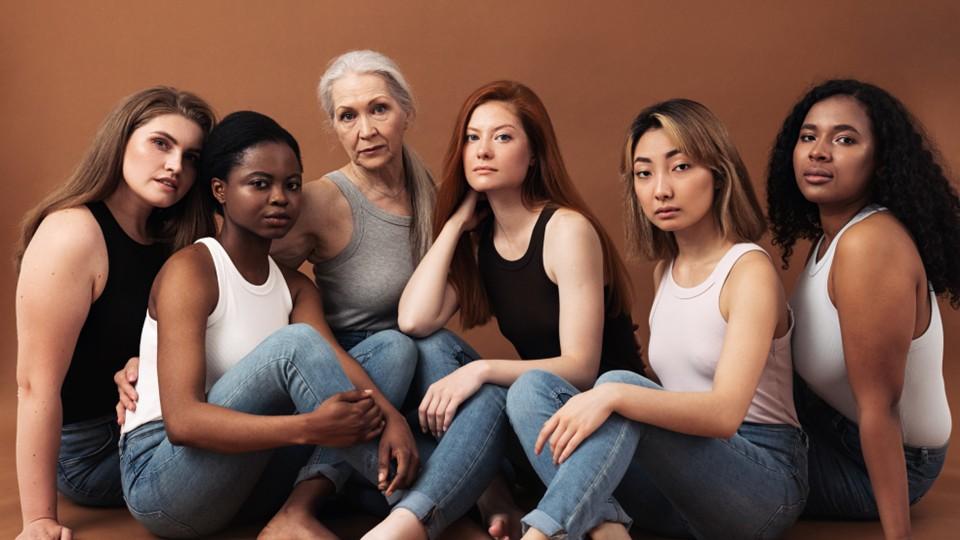Ending the silence: Why the menopause matters in the workplace

One of the biggest challenges for women in their 40s and 50s going through the menopause is the recognition that one size does not fit all.
There are approximately 13 million peri- or post-menopausal women in the UK, which is equivalent to almost one-third of the entire UK female population. Whilst it is a universal experience that everyone who is biologically a woman will have to go through, no two people's experiences are the same. The classic symptoms like hot flushes, sleeplessness, and loss of mental acuity are well-known, however, research shows that there are more than 30 recognised symptoms of the menopause. Its manifestations are multifaceted and understanding its complexity and unique individual characteristics is crucial to enabling employers to respond appropriately and support their staff.
The menopause and workplace brain drain
The impact the menopause has on women in the workplace is far from trivial: the debilitating effects all too often lead to women reducing their hours at work, seeking less challenging roles, or dropping out of employment altogether. The latest research suggests that a third of women will experience severe menopausal symptoms that can impact their quality of life, and, more shocking still, that one in ten women leave work because of the lack of support they receive from their employer. During their 40s and 50s, women are statistically more likely to be in an ascendant phase of their career, climbing the corporate ladder to reach more senior levels or responsible positions. When talented women feel compelled to drop out of the labour market, through no fault of their own, everyone loses out. Employers lose talented people who can add value to their organisation, the economy loses their contribution, and women miss out on rewarding roles in which they feel fulfilled.
It's a scandal that we lose so many talented people from the workforce for a wholly treatable condition. Nonetheless, this situation is beginning to change with the Equality and Human Rights Commission issuing new guidance requiring employers to make reasonable adjustments for women going through the menopause. The adjustments proposed include the relaxation of the work uniform policy to allow women to wear cooler clothing, as well as providing rest areas and flexible working policies. The practical upshot of these changes is that failing to make reasonable adjustments will constitute disability discrimination under the Equality Act 2010, resulting in legal action. Any improvements to strengthen women's employment rights are of course welcome, but a good employer would never fall foul of disability discrimination legislation and be willing to offer reasonable adjustments in any case. Legal interventions can help crystalize existing practices and, in some cases, act as catalysts for change, but this must be matched by a radical rethinking of our existing work culture and social attitudes to be truly effective.
Why we need to talk about the menopause
When it comes to tackling the issue of the menopause in the workplace, rules and regulations aren’t the whole story. It's about fostering an environment based on inclusivity and tolerance to deliver the kind of cultural change needed. There’s still stigma, taboo, and a culture of silence surrounding the menopause that needs to be addressed. Having open and inclusive conversations with women of a certain generation, and younger, plays an important role in reshaping the narrative and challenging the stigma. I’ve spoken to so many people at the agency about my own experiences of the menopause and going onto HRT, and I have encouraged my colleagues to do the same, which has been a real game-changer. Creating these kinds of informal networks for mutual support is an integral part of creating a culture of sharing and inclusivity. These conversations are important and need to happen, although they aren’t always easy.
As a CEO who’s had to juggle doing a demanding job plus going through a major hormonal change, I am conscious that I wouldn’t want anyone else to go through the same things that I have. I’ve sat through high-level board meetings whilst having a hot flush. My approach at the time was that I was going to have to just do this; I felt that I couldn’t tell anyone because I didn’t want anyone to think I was weak or couldn’t cope. I wish someone had said to me that it’s OK to go outside for half an hour, get some fresh air, and cool down. Having unpleasant experiences like this has made me all the more determined to challenge the negative perception and stigma associated with the menopause, and enable both men and women to acknowledge that it isn’t a sign of weakness to ask for help. Dilemmas like this strike at the heart of a long-standing debate about whether hormonal change should be seen as a medical problem that requires treatment intervention or a societal one that requires cultural change. This issue has recently been explored by the international medical journal The Lancet.
Medicalising the menopause vs a society shift: A false dichotomy?
In March of this year, The Lancet published a paper on the menopause that has ignited considerable controversy. The paper argues that the debate around the issue is fundamentally misconstrued and stems from an over-simplified narrative of the condition as a health problem, deflecting attention from the need for substantial societal shifts in how it is treated. The research suggests that it should be seen as a normal part of the healthy ageing process and that women should be empowered through greater access to information and to being listened to.
While The Lancet is correct to highlight the need for societal change, it's important not to discount the positive value medical treatments can have. There needs to be recognition that the menopause is both a medical and a societal issue. It is estimated that only 20% of women get access to HRT, which poses the serious question of what happens to the other 80%. Women often have to fight long and hard throughout their whole hormone journey, with periods or fertility issues, only to be denied access to treatment like HRT, which can easily address some of the debilitating symptoms women experience. I had to go privately to get HRT, even though body-identical oestrogen and progesterone is available on the NHS. I couldn’t get what I wanted via my GP, so I had to get what I wanted privately. Some people aren’t lucky enough to be able to afford to do this or have the educational advantages to challenge the system.
I also experienced issues with mental acuity when I was going through the menopause. I’m a PhD scientist and have worked in senior leadership roles for over 15 years, so it was a real shock when my mind started to fade. It felt like someone was turning down a dimmer switch. I was in the middle of negotiating a private equity deal at the time and I just couldn’t see the way forward. Testosterone treatments can help with issues like brain fog, but they aren’t licensed to be used on women in the UK, so once again I had to resort to getting a private prescription. Being prescribed testosterone was a turning point for me, and I felt strong and empowered again as a result of the treatment I received. I accept that interventions like HRT and testosterone therapy aren't for everyone, but access to treatments can play a pivotal role in tackling some of the issues women experience.
We shouldn’t set up a false choice between medical intervention and social change, tackling the scale of this issue requires using all the tools at our disposal to make the workplace a more inclusive place.













